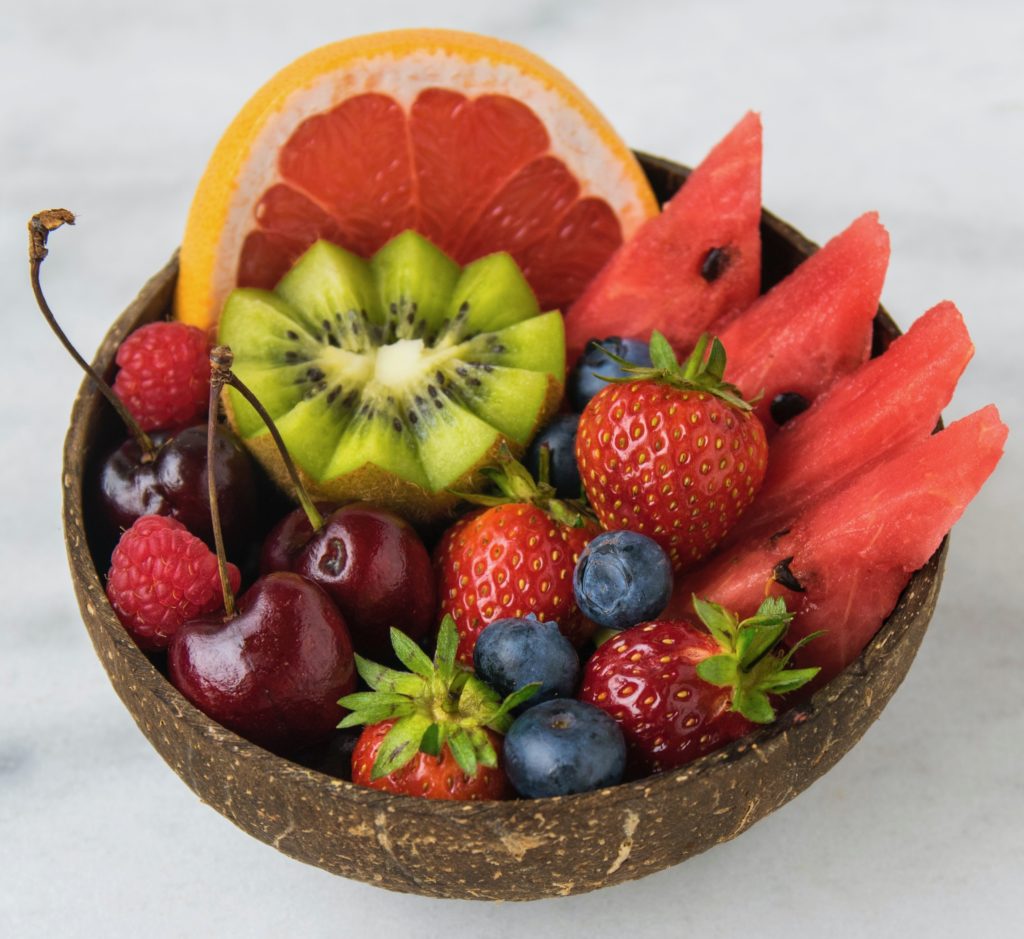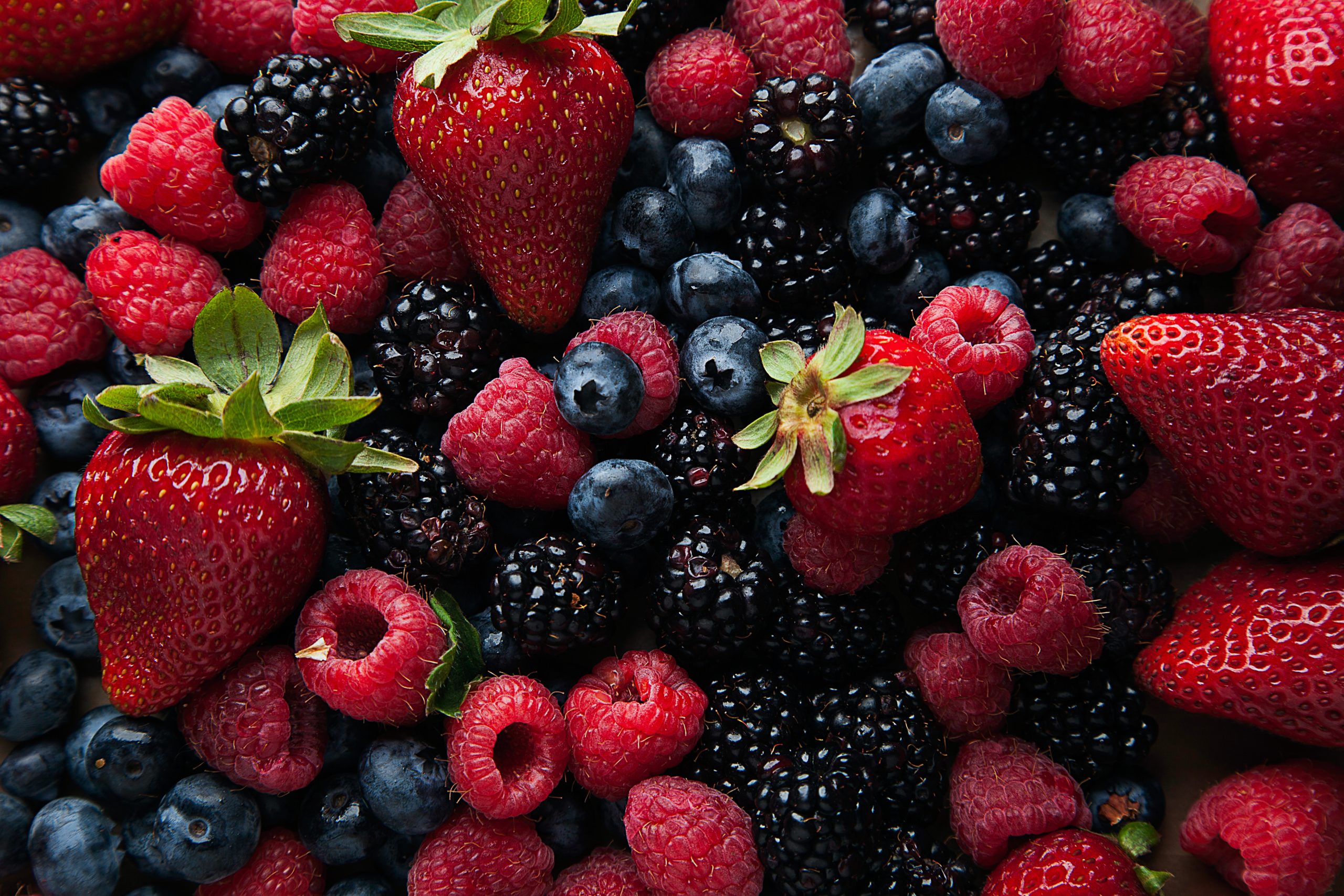Fruit fear is real. As a nutritionist, I hear it every day, “I don’t eat much fruit because of the sugar,” or “I’m on a low carb diet so I avoid fruit.” I sometimes hear other nutritionists advise people to limit fruit. And when I hear cancer patients say they are “avoiding fruit because it feeds cancer” it makes me wonder why there is so much misinformation in the media about fruit. Here’s what you need to know about fruit and why you should be eating it every day.
Fruit Fear Makes No Sense
Fruit is critical to your health. It’s a healthy and important carbohydrate that provides fuel for the body. It’s loaded with vitamins, minerals, antioxidants, fiber, and water. And it’s low in calories. That makes it a nutrient-dense food. So, let’s begin with the many benefits of eating fruit.
- Fruit is an excellent source of fiber. Eating more fiber can help you feel fuller after meals, nourish beneficial gut bacteria, reduce food cravings, and support healthy weight loss (if needed). The fiber in fruit is what helps maintain balanced blood sugar.
- There are many studies that show eating fruit is associated with lower calorie intake and may lead to weight loss over time.
- Fruit contains water, helping to maintain good hydration.
- Recent research published compared data that looked at the eating habits of 1.9 million people from 29 countries. Results showed that eating about five servings of fruits and vegetables daily—especially if it’s three servings of veggies and two of fruit—was associated with the lowest risk of death.
- Fruit is anti-aging, because of the high level of antioxidants and phytonutrients.
- The nutrients in fruit are important for maintaining healthy immune function.
- Fruit has powerful anti-cancer and disease-fighting nutrients. Cancer patients should be eating whole fruit.
- It tastes good and can satisfy sweet cravings. This may lead to a decrease in eating processed sweets.

Berries are Super-powerful
Berries, along with some other fruits and colorful vegetables, are loaded with a substance called anthocyanins. These anthocyanins are the pigments that give berries their deep red and purple color. These colorants are also found in cherries, pomegranate, purple grapes, beets, red cabbage, and red onions. Anthocyanins have antioxidant, anti-inflammatory, anti-viral, and anti-cancer properties. Research indicates that purple and red fruits, vegetables, and herbs may help to protect against cancer, cognitive decline, diabetes, heart disease, and obesity. So, make sure you have berries daily.
Fruit Fear is Likely a Result of Sugar Misinformation
So let’s learn about fruit sugar, otherwise known as fructose. In its natural form, it’s completely safe and metabolized by the liver. However, in its processed form, such as high-fructose corn syrup (HFCS), it’s harmful. Here’s the difference:
- When fructose enters your liver slowly and in small amounts (the case when you eat whole fruit), your body can easily metabolize it.
- When fructose enters you liver fast and in large amounts (the case when you drink soda), it can have harmful health effects over time. Think about HFCS as a cause of fatty liver disease.
Fructose is harmful in excessive amounts but it’s hard to get that amount from eating fruit. In fact, a couple of small studies in people who ate 20 servings of fruit per day for several months showed no adverse effects. There are also several studies that show when fruit is eaten in its whole form, it has little effect on blood sugar. This is precisely what nature intended.
Fruit is Medicine
The recommendation for fruit intake is two cups per day (or 2-3 servings). If you have more than that, it’s probably OK and likely to benefit your overall health. If you are counting “added” sugar in your diet, that doesn’t include fruit sugar. So don’t let fruit fear stop you from enjoying one of nature’s sweetest and most powerful health treats.

Thanks for this information. I love fruit and this make it even better! Enjoy! Peace